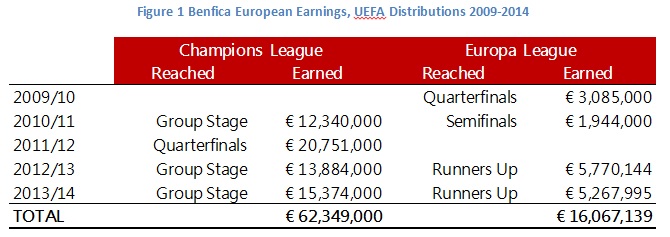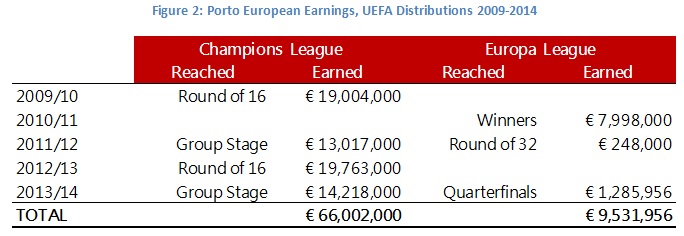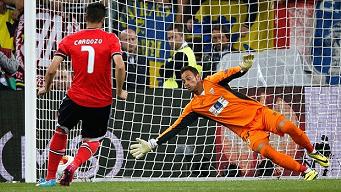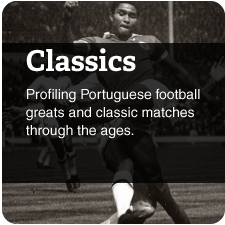Benfica travel to Russia next week with their Champions League future on the line. Benfica expert Marco Lopes argues that unless they beat Zenit and secure 2nd place in Group C and direct qualification to the knockout stages, it would be preferable for the Eagles to get knocked out of Europe altogether.
Prior to this season, the last time Benfica crossed swords with Russian side Zenit St Petersburg Jorge Jesus was guiding one of the best configured sides in the club’s recent history. The team of 2011/12 remains the only one to progress past the Group Stage under JJ’s reign. Many of the key actors have left since – Axel Witsel, Javi Garcia, Bruno Cesar, Nolito, Pablo Aimar… and the infamous Emerson, of course.
It was a team that posed questions of the eventual dramatic winners of that tournament – Chelsea – but to no avail as the image of Fernando Torres and the somewhat irreverent Raul Meireles came to haunt Benfica’s dreams of further progress in the competition.
That year Zenit lacked the lavish and expensive stars of today’s team, with former Porto stalwart Bruno Alves one of the few notable foreigners in their ranks. Benfica nearly came away with an impressive draw too, were it not for the efforts of Roman Shirokov who scored a mere minute after Oscar Cardozo had equalised for the Eagles. The 3-2 defeat proved a great result to take into the second leg as in Lisbon Maxi opened the scoring again as he did in Russia, heaping the pressure on the visitors to the Luz and paving the way for a 2-0 victory and a berth in the last eight.
A Team in Transition
On 26 November, Benfica again travel to a Zenit, with the Russian team’s backs against the wall after the high pressing ferocity of Leverkusen stole three points from their home turf three weeks ago. For Zenit to have taken just 1 point from 6 thus far at home in this Champions League campaign is both surprising and ominous. Jorge Jesus faces a considerably difficult task with his team when they attempt to calibrate their European fortunes in their own favour.
There’s a series of burning questions to ask about Benfica this season. Between injury and transfers, Benfica have lost an entire XI - Oblak; Silvio, Garay, Siqueira; Fejsa, Matic, Amorim, Andre Gomes; Rodrigo, Cardozo, Markovic. Yet, the team still occupies the summit of the Liga table. The performances have felt shallow, the results betrayed by the anemic nature of the football Benfiquistas have witnessed. There’s a vast over-reliance on the talented young Anderson Talisca, whose goalscoring spree is in itself misted by concerns over his work-rate, decision-making and participation in the team’s defensive responsibilities.
But that surely is the sign of a good team? Winning ugly? Winning scrappy affairs, sometimes merely through the attritional restlessness of attacking talents that only need to shine briefly enough to pierce defences for the pivotal goals that secure the points? The team is clearly in transition, that much is clear. But this transitioning team is also two points better after 10 games than last year’s title winning squad, and has matched the points return of the 2009/10 champions at the same point of the league campaign.
It’s all about priorities…
Regardless of the unconvincing performances, veiled over by the results, Benfica are at least challenging the chasing pack to lift their levels to "catch us if you can". Perhaps it’s as much a sign of the strategy behind the priorities as it is the execution of them. The backdrop to last season’s domestic treble entailed repeated comments by Jorge Jesus emphasising that the Liga was the key focus, even as the promise of yet another Bela Guttman-cursed final loomed with each positive Europa League performance.
Perhaps those priorities are reflected in the apparent lethargy of the team’s European performances. It’s fair to say that Benfica haven’t had a group this difficult and this competitive since they shared the famous European anthem with Schalke and Lyon in 2010. There’s an irony that the weakest squad Jorge Jesus has presided over has to navigate the toughest group they’ve drawn. These are both arguable points, but you’ll likely find few Benfiquistas who dispute that Benfica underachieved considerably against Celtic in 2012 and Olympiakos in 2013.
This season’s meek Champions League campaign may yet prove positive, since Benfica could still qualify with wins over Zenit and Leverkusen, but the unlikelihood of that is well juxtaposed against the promise of another title. A coveted back-to-back title. And it’s been nearly 30 years since Benfica managed anything of the sort.
Counting the cost of a European exit
What then of the implications of an early European exit? Do Benfica again pursue another trip to the Europa League finish line, possibly to again finish as the bridesmaid to another Hungarian inspired piece of alchemy?
It sounds sacrilegious, but there may be merit and logic to Benfica finishing outside the Europa League places and experiencing an unprecedented 4th place in their group if they fail to secure the runners-up spot.
There are various arguments to consider for this, but the most obvious one is financial. Despite Benfica’s last two trips to the Europa League’s crowning fixture, the return on investment on those extra 9 matches has been considerably less lucrative than the 6 matches offered by the Champions League Group Stage:

It’s astounding to consider, but even with the extra €2,500,000 that a team wins for becoming Europa League champions, Benfica would effectively be required to win the Europa League twice to match, or slightly exceed one poor season in the Champions League group stage.
Consider Porto’s record as a comparative reference:

It’s not just less money that makes the Europa League a challenge to navigate. When Porto won the competition in 2011, it entailed a 17-game campaign. It did end in glory, but it’s quizzical that Porto earned 1.6 times more cash off 6 games in their 2011 Champions League group stage campaign.
Benfica may have reached two consecutive finals, but the irony of the slow devaluation of the Europa League is evident in how Benfica’s six Champions League group matches before exiting on goal difference to Olympiakos last year earned the Eagles nearly three times as much cash as their subsequent run to the Europa League final and eventual defeat on penalties to Sevilla.
The Liga remains of utmost importance
Benfica may also find the reduced demands in travelling across the continent more appealing. Yes, it’s completely out of character for the club to accept such a situation, but last season’s squad (as an example) had a fair bit of slack built in to allow the battle to be successfully managed on four fronts.
In contrast, Porto are guaranteed progress from their Champions League group, and Sporting look likely to secure at least a Europa League berth from theirs. Both these teams are also in transition with new managers and Porto in particular with new players, so the added matches will no doubt squeeze the extra depth in their squads to levels beyond what Benfica should be able to sustain if out of Europe.
Therefore, missing out on Europa League football could well be advantageous to Benfica. After all – the gains from the Champions League are clear for all to see, and the UEFA cash from another group stage campaign next year would be far more lucrative to the Eagles, especially if that would imply the glory of a successful title defence. The squad is thinner and weaker, and in transition, but a more direct level of focus on the Liga could be just the tonic that the club needs to take this group of players successfully into the next cycle.
Controversial as it may be, the club may just find a Europa League all the more detrimental to their efforts this time. So if there was a season to ignore Europe, this may well be it. Unless, of course, they win in Russia…
by Marco Lopes (for more from Marco follow him on Twitter @Footy_MarcoL)





